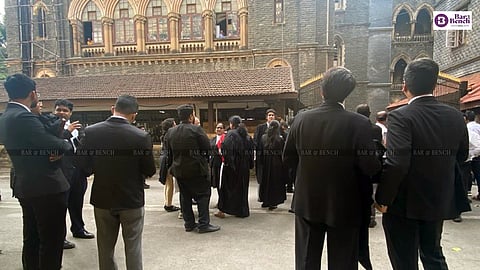
- Latest Legal News
- News
- Dealstreet
- Viewpoint
- Columns
- Interviews
- Law School
- Legal Jobs
- हिंदी
- ಕನ್ನಡ

Here’s the thing: fresh law graduates arrive at the Bar full of idealism and a shiny degree, only to find themselves at the bottom of a pyramid, working 12-hour days for meagre stipends, invisible to clients and seniors alike. They dream of arguing landmark cases, but end up fetching files and making endless copies.
In that sense, young lawyers today are glorified slaves - chained by unpaid dues, long hours and a system that valorises experience over potential.
Ask any junior advocate in Delhi or Mumbai and they’ll tell you the same story: chamber rent, case briefs, travel expenses and court filings chew up whatever meagre stipend they receive. In most metropolitan courts, a first-year junior earns between ₹10,000–15,000 per month, barely enough for rent and food in shared accommodation. Worse, that stipend often arrives late or not at all, depending on a senior’s cash flow or goodwill.
Outside metros, the picture isn’t much brighter. In district courts, juniors might scrape together ₹5,000–8,000 monthly, with no formal contract or guarantee. They rely on “chai-paani” (tea money) from senior advocates, which can dry up whenever work slows. Add to this the cost of attending hearings (travel, photocopies, research materials) and you have an economic quagmire that few families can sustain for long.
What this really means is: talent alone doesn’t cut it. Without a steady income, many good minds leave the profession within two years; either shifting to corporate roles, litigation support services or abandoning law altogether. For middle-class aspirants who depend on day-to-day earnings, the profession feels less like a ladder and more like a wall.
On top of that, there’s the “Godfather” factor. Without a well-connected senior or family member to vouch for them - arranging briefs, introducing them to clients, or even offering a spot in a busy chamber - many juniors linger in obscurity. The legal fraternity may preach meritocracy, but the reality is stark: nepotism and networks often trump aptitude. If you don’t have a mentor with a rolodex, you might as well not exist.
What most people forget is that young lawyers are the lifeblood of our justice system. They bring fresh perspectives, technological savvy and fierce idealism. They push for alternative dispute resolution, embrace legal aid causes and pursue human rights litigation. Yet, the Bar’s structure begs them to conform, to serve, quietly, until someone notices them.
The public still sees lawyers through a romantic filter. In cultural imagination, the profession is powerful, articulate, dignified- an emblem of justice. But this gloss hides the unpaid internships, the silent years spent observing from court benches, the financial anxiety of waiting for even one paying client to walk in. Reality and reputation don’t match.
What makes it harder is the complete absence of institutional support. There’s no fixed wage structure, no employment contract, no protection from exploitation. Juniors can be dismissed overnight. Many are expected to be available 24/7, to travel without reimbursement, to do clerical tasks in the name of “training.” And if they speak up, they’re told this is how it’s always been; it is abuse disguised as tradition.
But experience shouldn’t come at the cost of dignity. The legal profession needs reforms - real ones, not symbolic gestures. Bar councils must step in to mandate a minimum stipend, at least a survival wage, for all registered junior advocates. Legal aid services should offer paid fellowships that combine training with real case exposure. Bar associations must create structured mentorship programs, ensuring that every junior has someone genuinely responsible for their growth. Chambers should publish open calls for junior positions, with clearly stated responsibilities and pay brackets, to replace the opaque “referral” model that benefits only those with insider access. And most importantly, senior advocates need to rethink how they view juniors - not as cheap labour, but as future pillars of the profession.
I’ve watched many juniors juggle case loads with part-time tutoring gigs, or abandon chambers for corporate compliance roles that offer five-figure salaries. I’ve seen bright law grads slip away because they couldn’t afford the next month’s rent. And I’ve witnessed the glow-up when a young lawyer finally wins that first contested bail hearing - eyes shining, confidence renewed. That spark is what we need to preserve.
Those sparks fade when the system treats promising lawyers as expendable labour. When the name of the game is survival, not service, we all lose: courts get understaffed, justice slows and public faith erodes.
But change is possible. The Bar Council of India has overhauled rules before. High Courts can innovate pilot schemes. Chambers can lead cultural change by valuing mentorship and fair pay. If we align the glamour of public perception with real-world reforms, we can transform “glorified slavery” into dignified service.
So here’s the ask: let’s give our young lawyers not just work, but a runway. Equip them with fair wages, structured training and genuine opportunities. In return, they’ll deliver the justice our society needs - fresh energy, new ideas, and the relentless drive to make the law work for everyone. That’s a story worth telling, in court and on the front page.
Raghvendra Singh Rathore is a final year BA.LL.B student.